14 Best Social Media Automation Tools To Leverage in 2023
We know the struggles of social media managers: juggling multiple accounts, keeping up with content creation, and never quite having enough hours in the day. 🥵 Well, we’ve got your...
The world of social media is always evolving.
Platforms are constantly shifting, updating, and improving how they can serve their users. Whether you use Facebook, Instagram, Twitter, TikTok, Pinterest, or LinkedIn, each platform has its own unique trends. And with more and more people joining the social media world, the opportunity to reach a wider audience is at the forefront of every business’s mind. In fact, the number of internet users for 2019 has climbed to an incredible 4.388 billion, up 9.1% from 2018.
Every year we watch as different trends come and go, some frivolous, some long-lasting. In this article, we’ll discuss six social media trends that you should be on the lookout for in 2020.
Let’s start our list with the social trend that is most probable for next year. Everyone loves it. Your team is probably starting to prioritize it. It’s the rise of video content.
Video content has been on the rise for decades. It’s only been in recent years, with the birth of YouTube, that it’s become much more accessible to people across the globe. Everyone loves to watch videos, whether it be in the form of a TV show, movie, or content from their favorite YouTuber or Instagram influencer. We’ve even seen the introduction of video ads onto these platforms. Additionally, with the introduction of 5G, people will be able to stream online content faster than ever. This is great news for anyone involved in online video advertising.
Anyone working within the world of influencer marketing will especially benefit from the continued rise of video content.
Video is a medium that’s simple, quick, and incredibly engaging. A 30-second ad will connect with the viewer more than a billboard or magazine ad. Additionally, everyone is already familiar with video advertising so an increase in content won’t be alarming. And think about it, an eye-catching and memorable video will stick in the consumer’s brain far longer than a print ad will.
It’s simple to see the growth potential that video content has. Because social media was designed to connect people, video content is the perfect medium to post.
Major platforms like Instagram and Facebook have already pushed video content hard in the past two years. Instagram’s recent algorithm change favored video and pushed more of it to rank on the explore page. According to a study, the demand for video continues to grow:
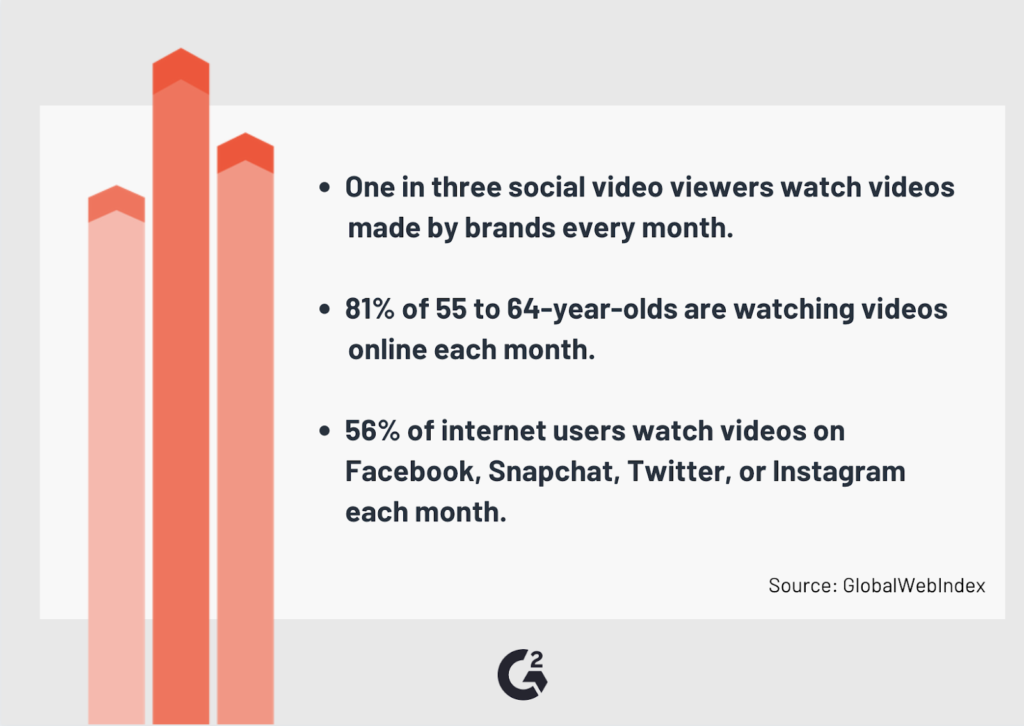
With this steep increase in video content and advertising – a medium of less typing and more live video, augmented reality tools, and audio command – we’ve only scratched the surface of video’s growth potential. If you’re thinking of implementing video into your marketing strategy, follow your gut and do it. It’s easy to see why the future is video.
Going into 2020, it’s probable that we’ll see more practical uses of virtual reality (VR) and augmented reality (AR) in marketing campaigns. These experiential marketing techniques continue to engage and dazzle customers, sticking in their memories for months after their initial experience.
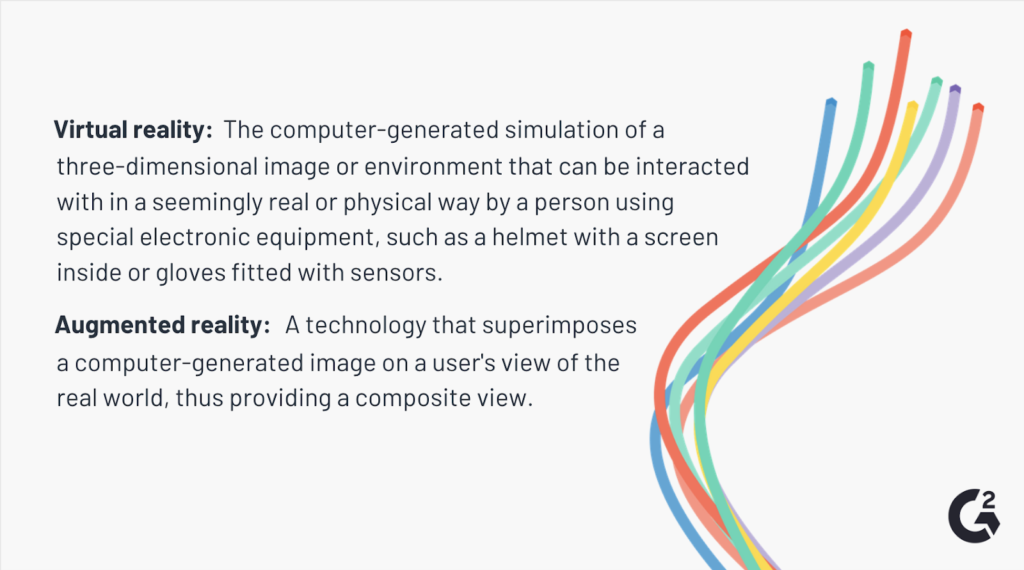
AR + VR can help the consumer step into a new world and experience things they wouldn’t normally have the chance to experience. One of the first companies to utilize this technology was IKEA in 2013.
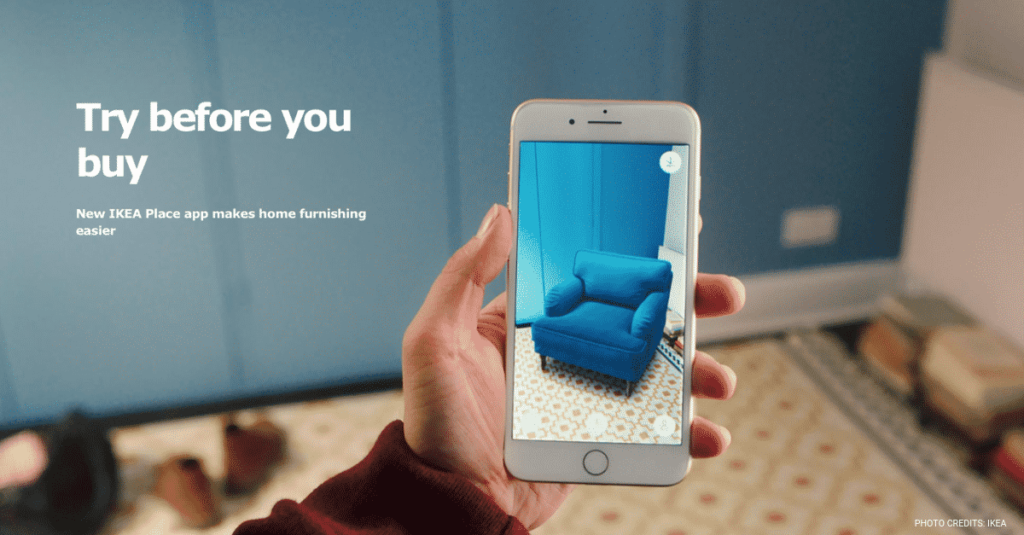
With the introduction of their app IKEA Place, the company made it easy for consumers to see what certain products would look like in their own homes. On the app, you can select a piece of furniture from the IKEA catalog and it’ll scan and project it onto your phone screen, allowing you to see what it would look like in the space.
Other companies have also caught onto the trend. Facebook introduced the Oculus Rift that transported you into a virtual reality world of your own.
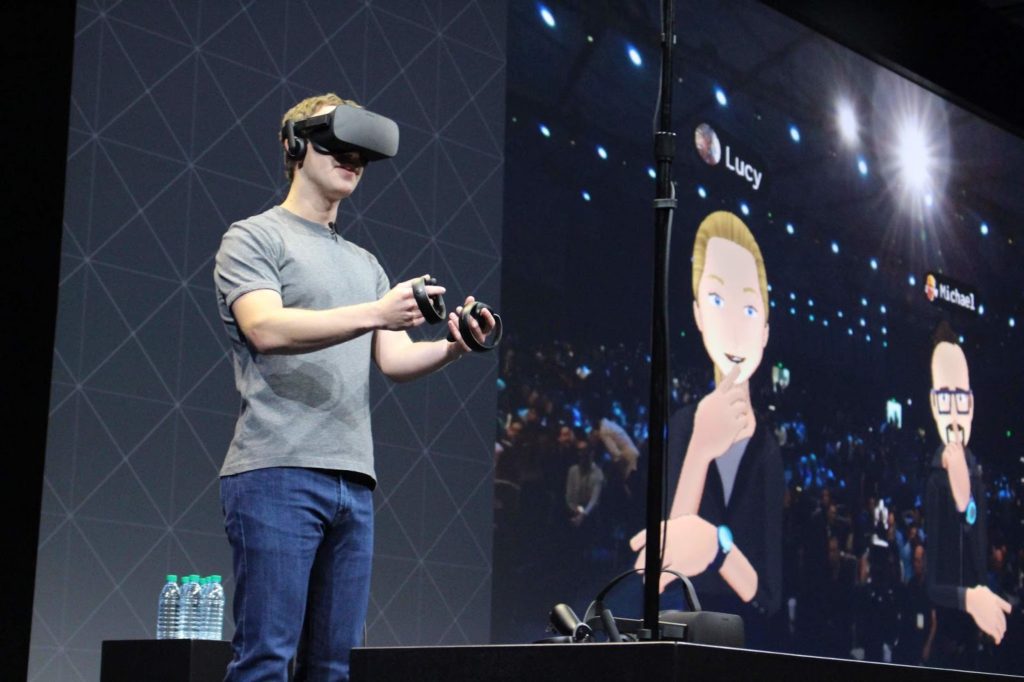
Snapchat changed the game and popularized geofilters and lenses on social media. Since their launch, they’ve been adopted into many marketing campaigns. Companies can use geofilters for location-specific events and encourage event attendees to post them for extended advertising reach.
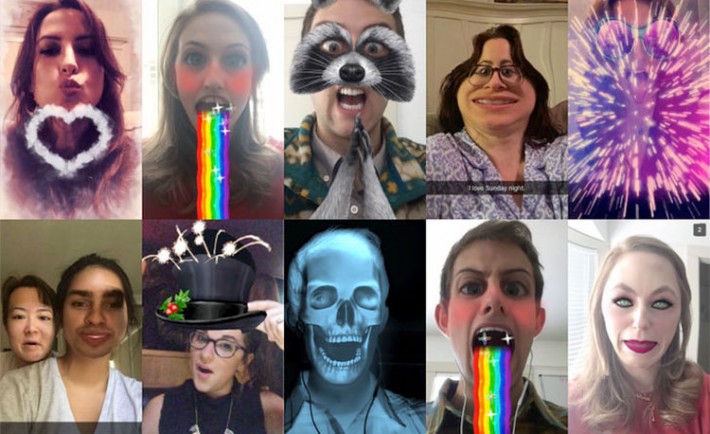
YouTube wasn’t too far behind and launched their own stories features, complete with even more AR lenses for consumers to enjoy.
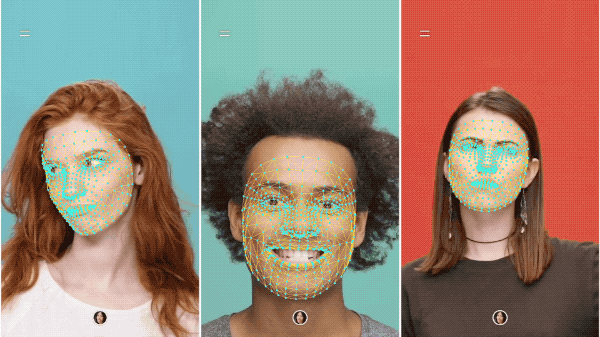
Consumers have eaten up AR + VR social features and there doesn’t seem to be anything stunting their growth. Gen Z’ers are helping to push it even further. A recent study reported that 22% of Gen Z’ers are using geofilters each month and heavily influenced by social reviews, admitting that a high number of likes and comments on social media motivate them to make a purchase.
No matter if it makes sense for your company to invest in AR + VR technology, keeping the idea in the back of your mind until you can is a good idea.
You may not notice it when it’s happening but you probably come in contact with a chatbot more than you imagine. Chatbots have been welcomed into the marketing world with open arms by major companies like Google, Facebook, and Amazon. Chatbots are primarily used to assist customer service teams and work to provide quick assistance and answers to customers who are having technical issues.
Related: How can AI and automation influence your content marketing strategy? Find out here.
As 2020 approaches, we can expect advancements in artificial technology that will make these bots more intuitive, ultimately providing customers with improved service. The best plan of action for advertisers is to meet their consumers where they’re at. If your audience has a heavy footprint on Facebook, install a Facebook Messenger chatbot that can send timed messages when appropriate.
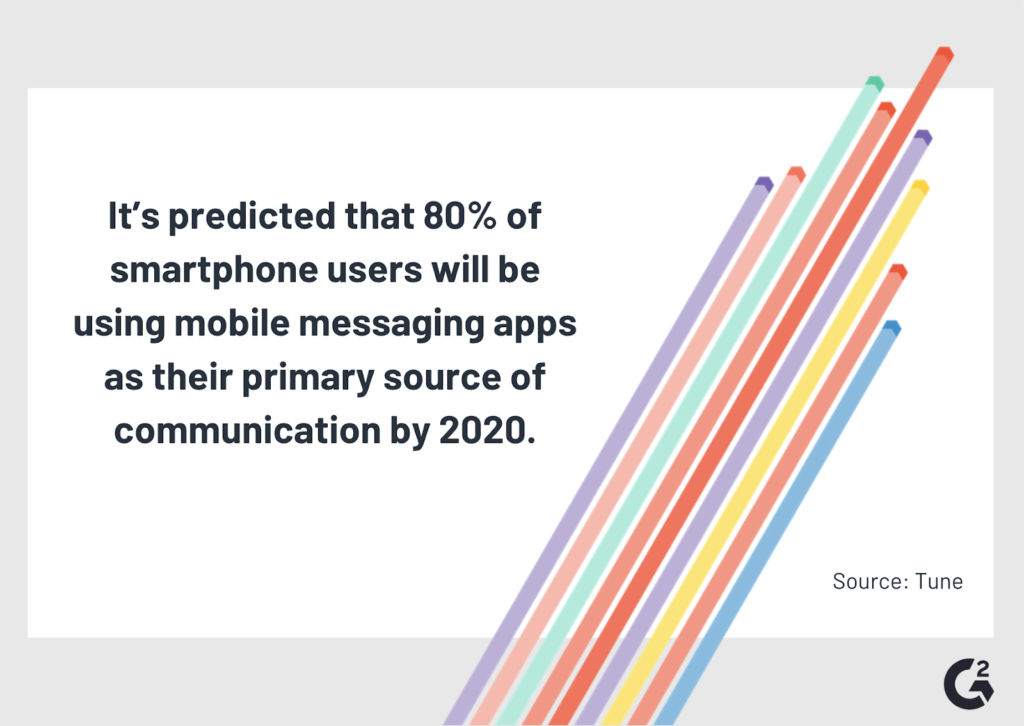
Messenger apps like Whatsapp and Facebook Messenger are some of the most successful avenues to install a chatbot and have direct contact with your customers. In fact, thousands of companies around the world have already adopted chatbots as a staple of their online advertising strategy.
In 2019, LinkedIn’s growth skyrocketed and flipped the digital marketing space on its head. No one could predict that a professional networking and job searching site would step up and become a force to be reckoned with within the social media world. But because thousands of business professionals are browsing LinkedIn, the site has become a perfect place for B2B advertising.
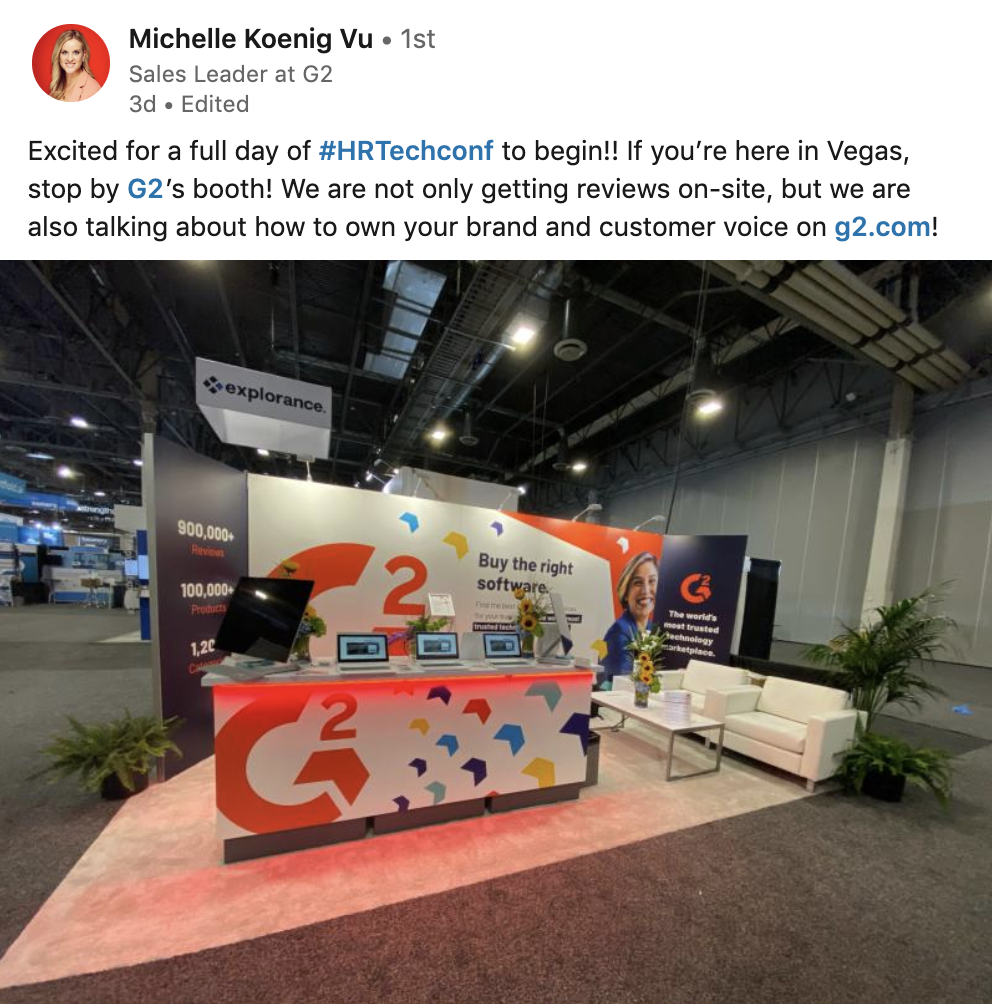
Just like other social sites, advertising on LinkedIn is a cost-effective way to advertise to companies and business professionals alike. Whether your company just passed 50 employees or you’re at the enterprise level, you can find success and target whatever demographic you’d like, such as job level, past experience, skills, and location. The site is predicted to continue its rise and become a social media staple.
Related: Need an online makeover? Read up on how you can freshen up your LinkedIn business profile as well as some best practices to keep your online presence alive.
Online consumerism is increasing every year. It makes sense with the convenience of online shopping and more companies offering e-commerce options on social media platforms. Combine the popularity of social media and people’s unwillingness to leave their house to buy products, online e-commerce is an obvious solution.
From small businesses to huge retailers, social media’s role in e-commerce will continue to grow. Even now, Instagram has already introduced its own e-commerce app ‘Checkout’ that allows users to buy products from popular brands right on Instagram.
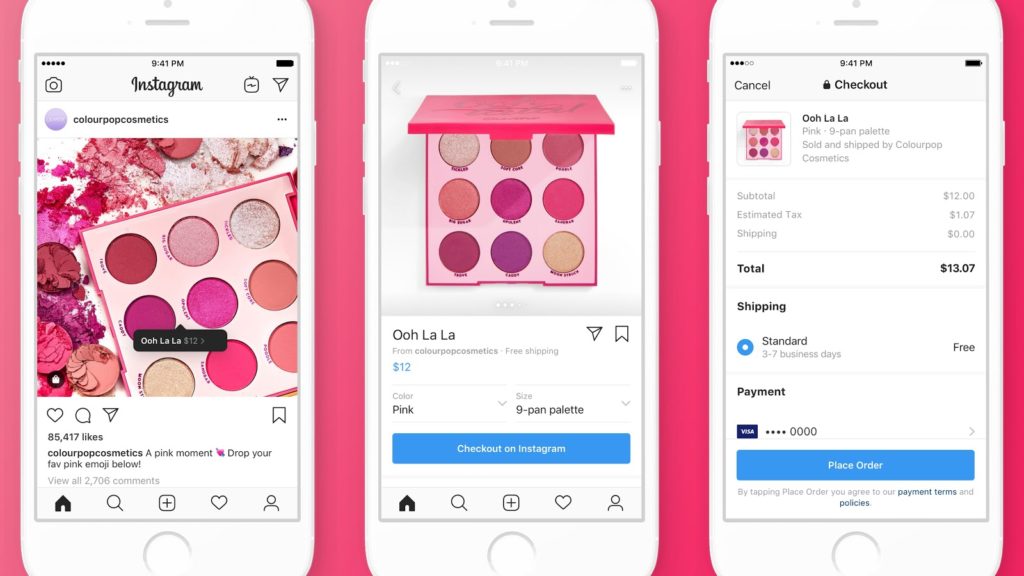
When users like something they see on the app, advertisers can take advantage of the Checkout app and provide them with a call-to-action to bite the bullet and purchase. Offering the buy button right on the app can eliminate the need for a website or app download. Online e-commerce will see an increase in popularity, so sitting down with your team and brainstorming the best way to utilize the selling tactic will optimize conversions.
Although we can’t predict the future, we do know that using social media is the best way you can reach your audience. To stay relevant, you’ll need to keep up with trends, forecast what strategies will be long-lasting for your business, continue to post at the right time, and do your best to stay ahead of the competition. Social teams should always be reevaluating their strategy and tweaking it when needed to engage and manage the community surrounding the brand.
And just remember, social trends won’t go away so do your research and lean into them with confidence.